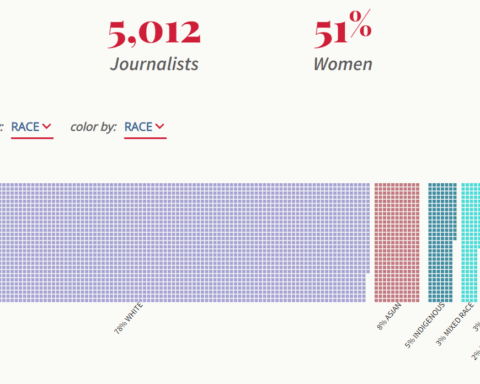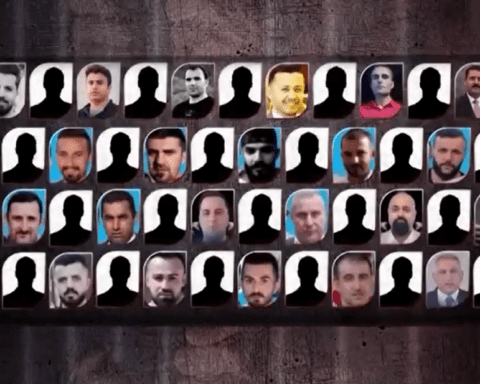Journalist Manny Mogato is more accustomed to writing news reports than being the subject of the story.
Last year, the Reuters Philippines Correspondent made headlines when he was targeted by pro-Duterte supporters who hacked his Facebook account. “It was eye-opening,” he said. “It had a chilling effect, not just for me, but for Filipino journalists.”
Concerned about his security, editors considered relocating them. But Manny convinced them that it wasn’t necessary; it would all blow over after a while. And, luckily, save for the occasional attacks on social media, the issue eventually died down.
Still, Mogato managed to find the humor in the situation. “They changed my profile picture to that of pro-Duterte blogger Mocha Uson,” he said, chuckling. “And my banner to say, ‘Duterte is my president.’”
Mogato has since changed his Facebook settings. Nonetheless, his editors had every right to worry; the threat to journalists in the Philippines is all too real. With the 2009 Ampatuan massacre still fresh on people’s minds, the deaths of at least 32 journalists serves as a stark reminder of the dangers of reporting about politics and conflict in a country where those two topics often go hand-in-hand.
But Mogato is certainly no stranger to conflict – he’s made a career out of reporting about it, along with insurgencies, human rights, international affairs and politics. For over 30 years, the reporter has found himself in the front row to some of the most turbulent times in the Philippine political landscape: the end of the Marcos dictatorship, the country’s transition under the Aquino administration, and the time when President Estrada used his political clout to shut down The Manila Times, where Mogato worked as an assistant news editor.
It’s this grit and storied career that has made him the latest recipient of the Marshall McLuhan Award for Investigative Journalism. Joining an esteemed line of media professionals, Mogato was in Toronto on December 5 to speak in a forum attended by Filipino community media and others and organized by the Filipino Canadian Writers and Journalists Network. In addition to sharing his knowledge and experience as a professional lecturer at the University of the City of Manila, Mogato is a member and three-time president of the Foreign Correspondents Association of the Philippines (FOCAP).
Launched in 1997, the Marshall McLuhan Fellowship is a public diplomacy initiative launched by the Embassy of Canada to foster responsible journalism in the Philippines. “Canada places a lot of importance on press freedom,” said Carlo Figueroa, the Public Affairs Manager for the Canadian Embassy. “It believes that in helping build capacity of journalists in the Philippines, it further strengthens the tenets of democracy and good government in the country. That’s the aim of projects such as these.”
As the 20th McLuhan Fellow, Mogato concluded a two-week speaking tour across Canada at Wilson Hall, University of Toronto where he discussed key media issues during his lecture titled, “Journalism Under Attack: The Phenomenon of Fake News and Challenges of Accountability in the New Media.”
“Fake news has been there for a long time, it’s not new,” said Mogato. “There have been many stories in the media that are false to mislead people.”
Such is the alarming effect of spreading false information that when a fake news site fabricated a quote by Prime Minister Justin Trudeau regarding President Rodrigo Duterte, the Canadian Embassy in Manila was forced to issue a statement denying the comments.
Post-elections, however, fake news has taken on a whole new meaning. According to The Washington Post, stories that politicians like Trump or Duterte consider unfavorable are labeled by both leaders as fake news despite the accuracy of the reports. And such statements are detrimental to journalists’ efforts to uncover the truth.
“This time, fake news has a direct impact on news media,” explained Mogato. “They tend to discredit the credibility, not only of the news agencies but, in the Philippines particularly, the journalists themselves are under attack.
Lately, he has been reporting about conflicts such as the extrajudicial killings in the Philippines. Recently, Mogato was part of a team of Reuters journalists who received the Special Merit Award at the Human Rights Press Awards for their multimedia series titled, “Duterte’s War.” He said that people are dying in a drug war where there’s no accountability. “The police are only making excuses but they don’t follow the rule of law,” said Mogato. “These people aren’t given a day in court, they’re killed.”
Another topic he discussed was the importance of trust and transparency. “When Reuters reports on the drug war, we always give the government the right of reply,” he said. “The only weapon is to continue doing journalism [and] building trust, which is very important in traditional media – if you lose your credibility and people don’t trust you, you’ll lose readers and you’ll lose your business.”
Mogato also addressed the role of social media in politics. “We have to be critical in finding out if this information is true, [if it’s] actual fact and information because social media now has been polluted by so many vested interests,” he said.
He urged the responsible use of social media and warned against its potential to shape people’s perceptions based on what they choose to follow online. “Whatever you want to see is what appears so if you’re a follower of Duterte, what will come up on your feeds are all pro-Duterte,” he explained. “In a way, it’s clouding your reality; you think it’s the truth.”
When asked why he continues despite the risks, he said, “The attacks [against journalists] won’t go away. But we do our jobs by practicing good journalism because that’s a responsibility.”
The forum was organized by the Filipino Canadian Writers and Journalists Network (FC-WJNet) and Women and Gender Studies Institute, University of Toronto.
Reuters Duterte’s War: https://www.reuters.com/investigates/section/philippines-duterte/
Republished under arrangement with the Philippine Reporter.




